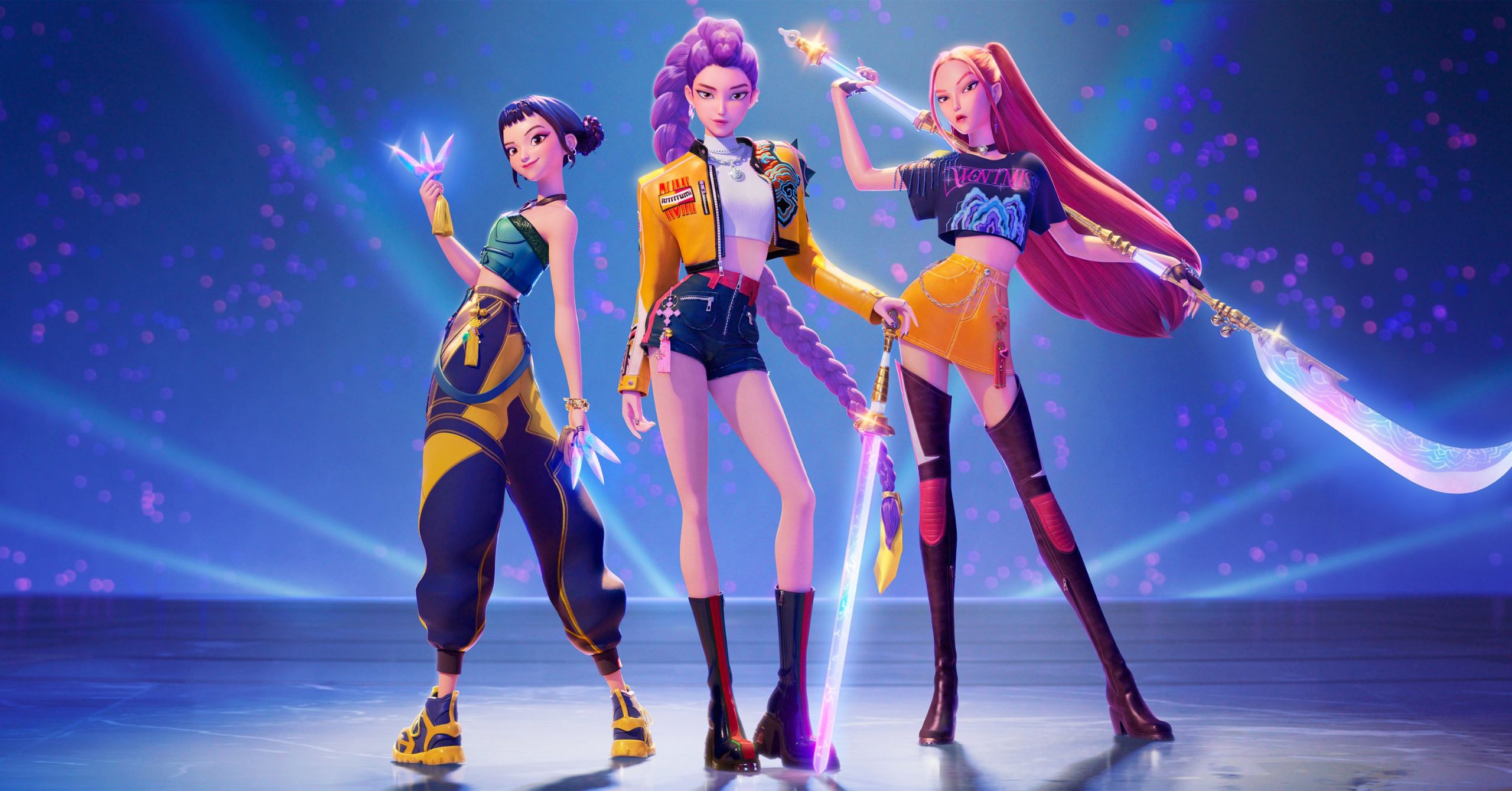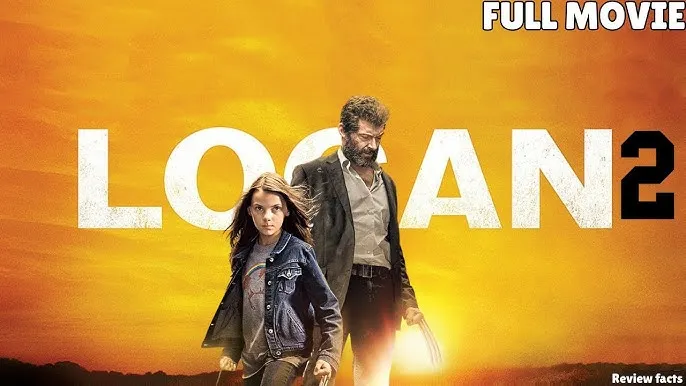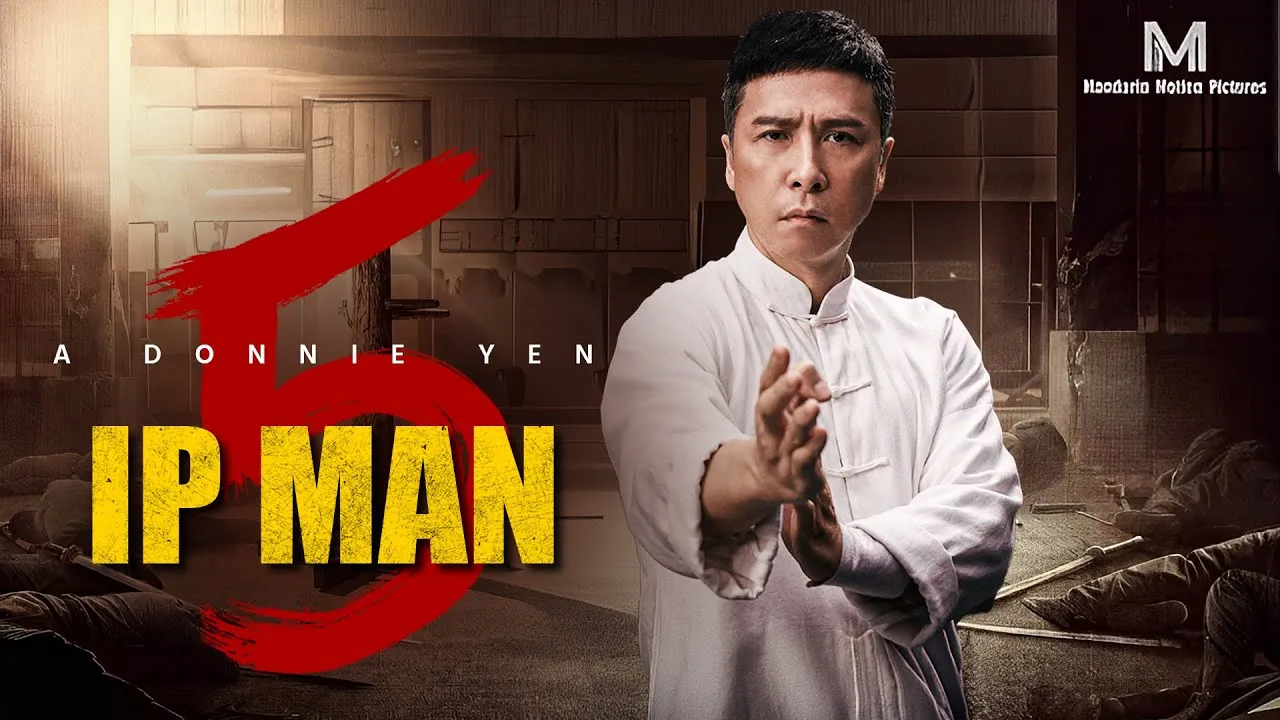“Where K-pop anthems meet ancient bloodlines, a new generation of demon hunters rises.”
In a dazzling world where neon lights and screaming fans mask hidden terrors, KPOP Demon Hunters (2025) fuses the vibrant spectacle of the Korean music industry with supernatural horror. The film dives headfirst into a story where the stage is not just for singing and dancing, but also for survival, as idols must confront creatures that feed on fame, fear, and desire.
At the heart of the film is a rising girl group, whose skyrocketing popularity draws not only the adoration of millions but also the attention of ancient demonic forces lurking beneath Seoul. Each member of the group carries more than a microphone — they wield secret ancestral powers that bind them to a legacy of warriors tasked with keeping the balance between humans and the underworld. Their glamorous lives quickly unravel into a battle of blood, fire, and haunting shadows.

Director Kim Ji-hye masterfully balances the glittering excess of K-pop concerts with the unsettling dread of horror cinema. The pulsating soundtrack blends idol anthems with eerie, distorted beats that echo like whispers from another realm. As the idols fight with blades and chants between tour rehearsals and fan meetings, the film questions how much of their lives belong to themselves, and how much are consumed by forces — both human and demonic — beyond their control.
What makes KPOP Demon Hunters stand out is its ability to weave cultural identity into the narrative. The film embraces Korean folklore and shamanistic traditions, showing how ancient rituals can coexist with modern superstardom. The members are not simply entertainers; they are vessels of inherited strength, each carrying their family’s burden into the fight against a darkness older than the stage lights themselves.

The film also doesn’t shy away from the darker commentary on the K-pop industry itself. Behind the glitz lies a world of control, exploitation, and sacrifice. In this story, those metaphors become literal, as the idols must choose between being consumed by demonic contracts or carving their own fate in blood and fire. The tension between survival as artists and survival as warriors makes every choice feel like a battle within a battle.
In the end, KPOP Demon Hunters (2025) is both a fever dream and a nightmare, where glamour collides with gore and harmony clashes with horror. It’s a film that asks: can beauty survive in the face of monstrosity, and can idols truly shine when even their own shadows want to devour them?



